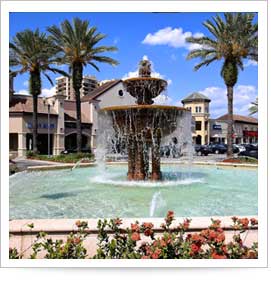
Foreclosure is a complicated legal process but with everyone talking about it, and real estate agents discussing these homes with their clients, we felt that we should briefly describe the foreclosure process. Foreclosure occurs when a home owner cannot, or does not want to, make the monthly loan payments on the mortgage loan.
Fortunately for the home owner, he or she has an opportunity up to the day the home is sold to bring the loan current and avoid foreclosure. The home owner would simply have to pay all arrearages plus attorney fees and costs for bringing the action. The foreclosure attorney will always have that specific number available if the home owner is interested.
After about three to six months of missed loan payments, the bank will file a document called a Lis Pendens in the county where the home is located. This puts everyone on notice that a foreclosure action has commenced.
If the loan is never brought current, then a foreclosure sale date is ordered by the court. The home owner will receive notice of the foreclosure sale date and this notice will also be posted on the property and published in a local newspaper for a three or four week period.
The foreclosure sale typically occurs on the steps of the county courthouse in which the property is located. The time and location of this sale are spelled out in the court document which ordered the sale. At this foreclosure sale, the property is sold in an auction to the highest bidder. An opening bid on the property is usually set by the foreclosing bank. This opening bid is usually equal to the outstanding loan balance, interest accrued, and any additional fees and attorney fees associated with the foreclosure process. If there are no bids higher than the opening bid, the property will be purchased by the bank itself. The winning bidder must pay the winning bid amount in cash. Most counties require this be accomplished with a deposit up front and the balance within 24 hours. The winner of the foreclosure auction will then receive the deed to the property.
If no one bids an amount equal to the opening bid then the property is called an REO, or Real Estate Owned. This typically occurs because many of the properties up for sale at foreclosure sales are worth less than the total amount owed to the bank.
When a property is purchased at a foreclosure sale, all junior liens other than property taxes are eliminated. The priority of all liens is determined by the date of recording. When an REO is purchased the owner receives the property with a clean title.
For more information of the legal foreclosure process, please contact an attorney who is knowledgeable in this area. If you would like to contact us at www.YourOrlandoRealty.com, we will have our staff attorney/agent review your questions.





